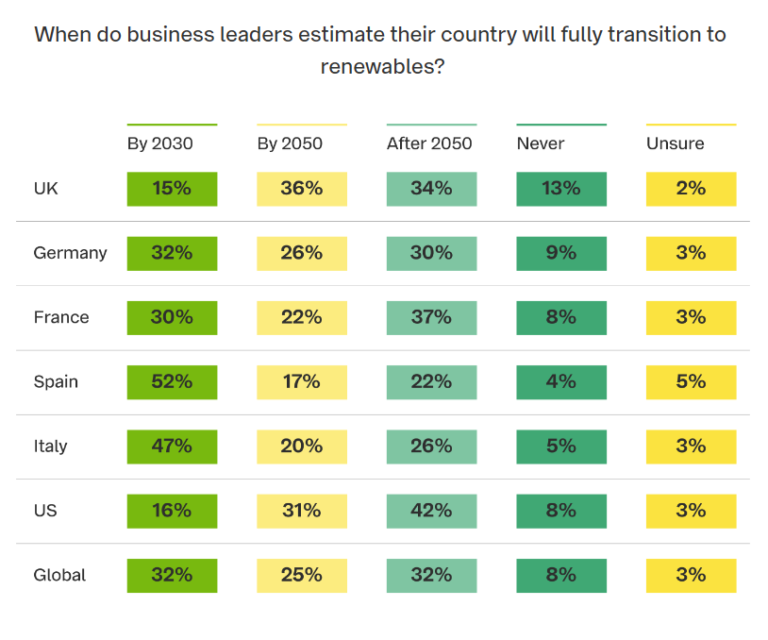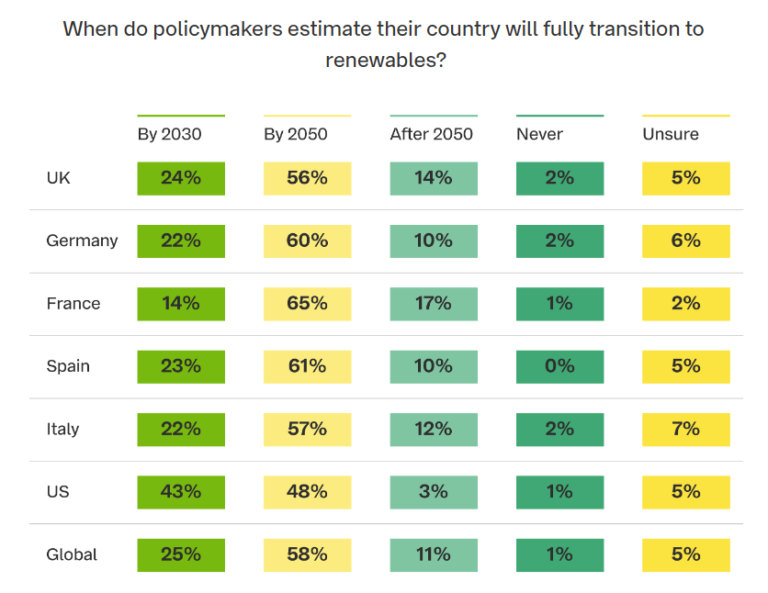
13% of UK business leaders doubt a full renewable energy transition will ever happen. Image: Getty.
The renewables arm of German industrial conglomerate BayWa Group has revealed that only 34% of UK business leaders don't think a full renewable energy transition will be achieved before 2050 in the UK, whilst 13% doubted it would ever be achieved.
This makes the UK the most pessimistic in regard to the energy transition, according to BayWa r.e.'sThe Decade That Matters 2.0 study.

Table: Baywe.re.
Globally, 32% of business leaders estimated that their country will fully transition to renewables after 2050, while 8% said it would never happen. In contrast, only 11% of policymakers trusted that their country would fully transition to renewables after 2050. A mere 1% did not believe this vision would ever come true.

Table: Baywa.re.
The study also examined the biggest barriers to speeding up the net zero goal. For example, 35% of policymakers said the public and businesses did not fully appreciate the impacts that climate change would have on them, or the speed at which the public and businesses could change or adapt. Moreover, 34% said the technical challenge of transitioning to net zero was the biggest barrier.
However, business leaders had different views, as 42% said the cost of transitioning was the biggest barrier, followed by inadequate support from the government (34%) and a lack of control over supply chain emissions (32%).
Lastly, the report also examined the obstacles faced by the European renewables industry in transitioning and phasing out reliance on Russian fossil fuels, although businesses and policymakers had different views.
European businesses said a fragmented response in policy from different EU countries (41%) was the main obstacle, followed by a lack of agreement from EU nations on gas price cap in case of an emergency (37%), and supply chain and trade policy constraints (36%).
However, 32% of European policymakers said supply chain and trade policy constraints were the major obstacles, while 31% said community acceptance challenges resulting from increased clean energy deployment was the main barrier, followed by resource constraints at a national and local level preventing institutions from keeping up with projects’ deployment needs (29%).
This article was taken from our sister site PV Tech and can be found in full here.

